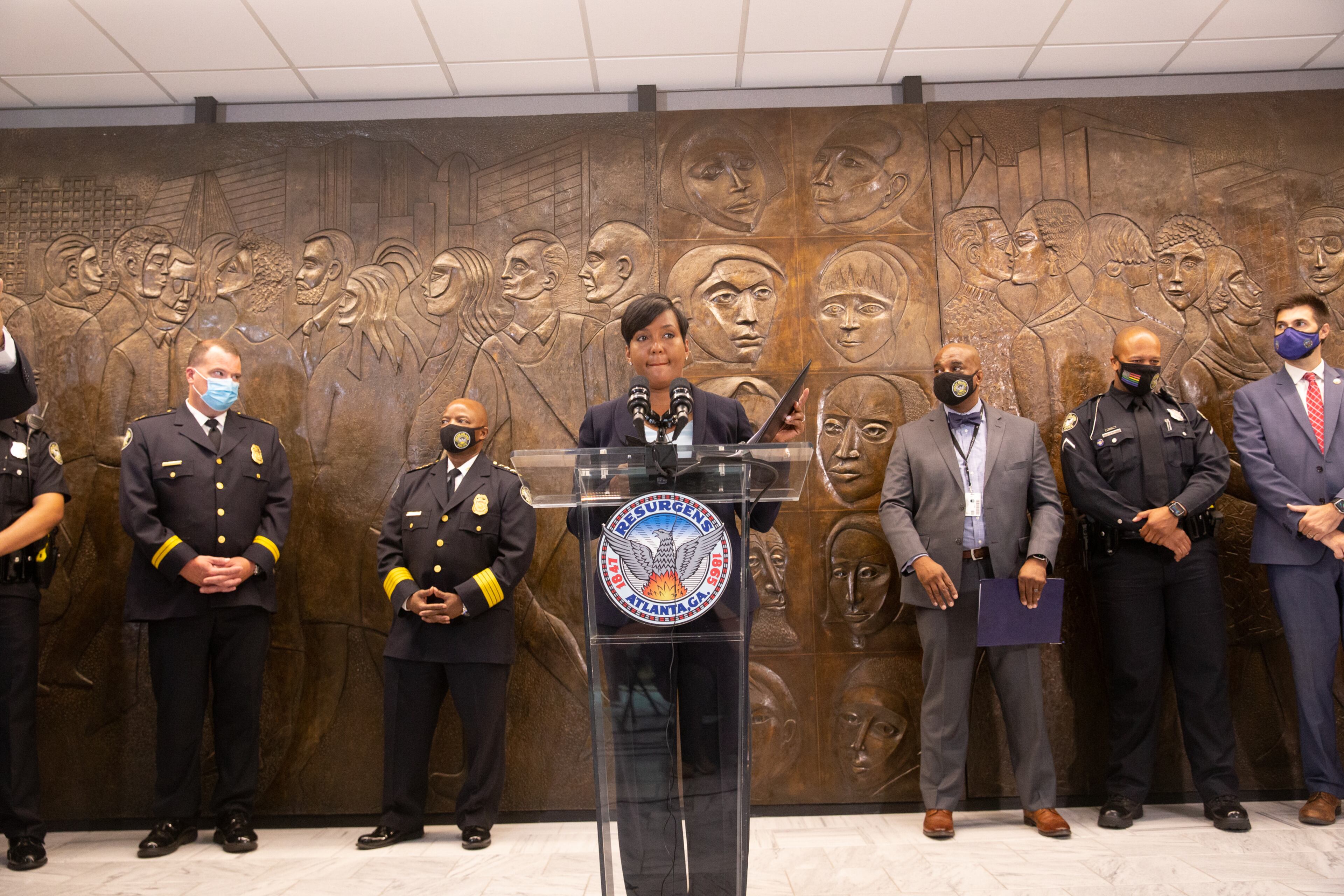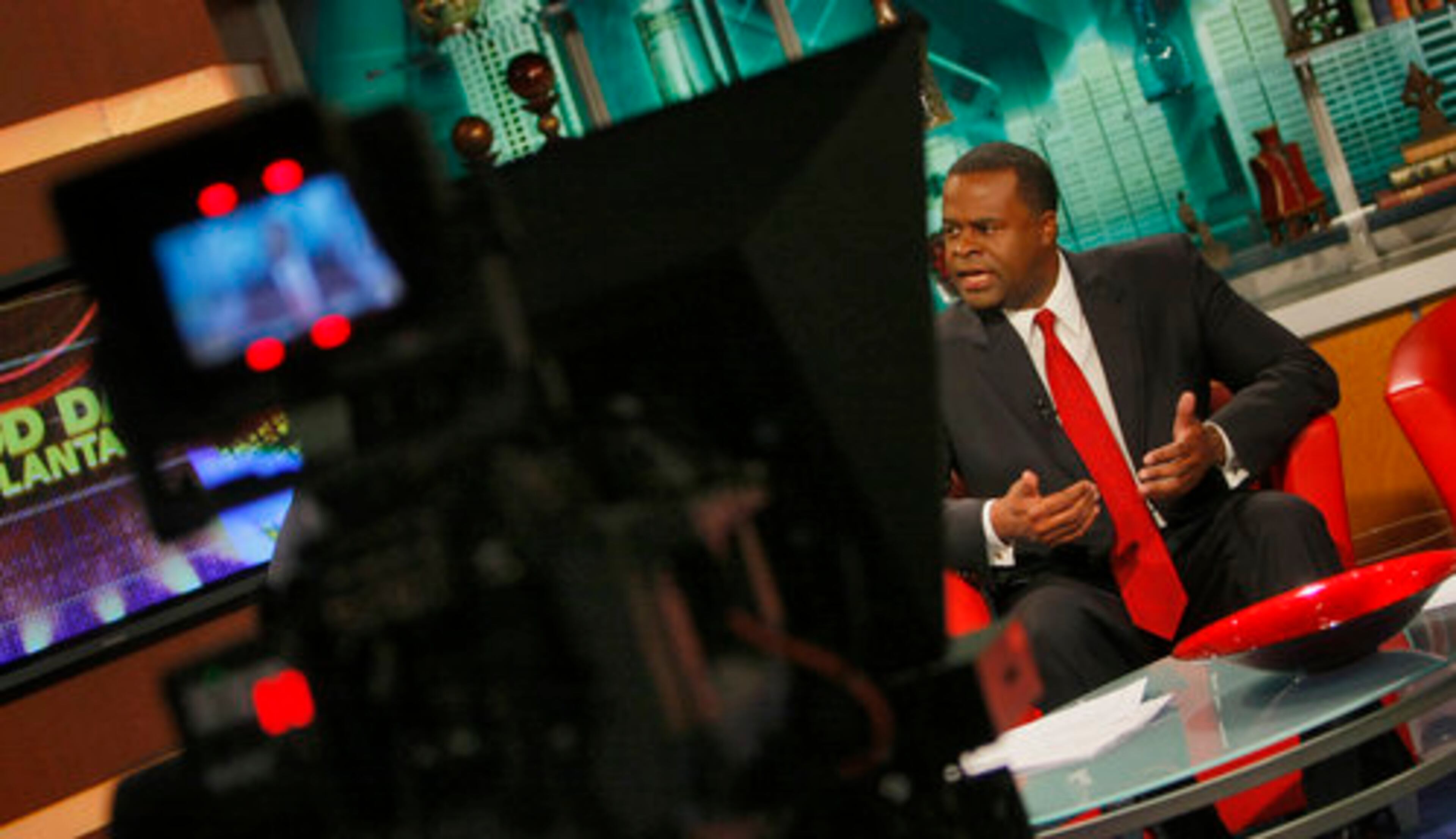OPINION: No beers with Hizzoner; but doughnuts perhaps?

Former Atlanta Mayor Kasim Reed’s campaign theme to regain his old job might be summed up this way: I may have been an SOB in the (not so distant) past, but going forward you can bet I’ll be your SOB.
Hizzoner pretty much said so this week in a mayoral debate with his four chief rivals: “I may not be the person you want to have a beer with. But I am the person who can get you home to have a beer with the person you want to have it with.”
I think the former mayor, who swears he has changed his bullying ways, means that he will transform the city’s public safety environment so you won’t get murdered on your way home and that frosty libation will be waiting for you in your fridge.
Word has been bubbling for a couple of weeks that the Atlanta police union is on the verge of endorsing Reed. If true, this is a world-turned-upside-down moment because this is the same union that a decade ago had a part in suing the city because of Reed’s pension reform (or pension devastation — po-tay-to, po-tah-to). They also erected billboards saying, “Danger: Enter at your own risk. Mayor Kasim Reed does NOT care about Public Safety.”
But the world does seem to be turning. Years ago, the president of the firefighters’ union said that Reed, through his cuts to the pension, was “shouldering its deficit on the backs of employees.” In fact, my long-running feud with the former mayor was kicked off in 2015 when I wrote a column saying Reed wouldn’t let me talk with some heroic firefighters who saved a kid because he worried they might bring up that he was holding out on a pay increase.
Well, that’s now water under the firetruck. The union recently endorsed him.

I couldn’t get hold of a fire union official for this column, but a longtime firefighter told me: “We never backed a winner. Maybe this is a reverse respective. They’re afraid if they go against him and go with (mayoral opponent) Felicia (Moore), then he’ll be against us from the start.”
The police union wasn’t talking either, so I spoke with former police union president Ken Allen, who is retired. He said: “It’s crazy that these employees who he mistreated think they’ll kiss up to him and hope for the best. He’s selling everyone on this pro-police (stand) when he’s been anything but. Felicia was the only one standing up to him when he was in office. She’s been pro-police but is not pushing it.”
It’s a delicate balance. Crime is THE issue of this year’s campaign, but Moore — a longtime member of the Atlanta City Council who has been Reed’s biggest challenger so far — can’t be too publicly enthusiastic about police. Otherwise, she risks backlash from last year’s social justice protesters.
According to an AJC poll released last month, Reed had the support of 23.5% of potential voters while Moore had 20.4%. But his unfavorable rating is 44% compared to 34% favorable. He’s a known quantity; you love him or hate him, and currently the latter seems to win out. Moore has a 44% favorable rating and a 10% unfavorable.
The other three main candidates, councilmen Andre Dickens and Antonio Brown, plus attorney Sharon Gay, were all largely unknowns when pollsters talked with voters weeks ago. The candidates have been raising and spending money at a pretty good clip and some of the others might crawl out of the single-digit numbers in our next poll, which is coming soon.
In terms of fundraising, Reed has blown everyone out of the water, pulling in $2.8 million between early June and Sept. 30, and spending almost $2 million in that time to sway some folks into thinking he’s their SOB.
In upcoming weeks, police roll calls will become a campaign stop for candidates who will be on “listening tours,” hoping to be photographed hugging a cop.
Reed likes to boast that crime hit a 40-year low during his eight years in office. But it pretty much did everywhere. The drops continued through the first couple of years of his successor, Mayor Keisha Lance Bottoms.
Then people started going crazy, shooting at each other since late May 2020 in a collective bedlam blamed on the pandemic, the George Floyd killing, and political protests. Bottoms has been seen as largely absent in this crisis, which opened up a door for Reed’s return.

Reed’s oft-told narrative is that he pulled Atlanta’s finances from the ditch and built up a $200 million rainy-day fund that can now be used to hire 750 cops. He said in Sunday’s debate that the Atlanta Police Department has 1,340 cops. However, an APD spokesman says that as of Sept. 27 there were 1,630 officers and an additional 81 recruits in training.
Reed insists his numbers are correct.
In the debate, he criticized Moore for voting on a 51% tax increase. Moore responded that vote came in 2009 during the Great Recession and the city was broke. She said the City Council (it was an 8-7 vote) was “very courageous and exercised leadership so that when Mr. Reed came to office he actually had some money to deal with it.”
I told Reed the increase was actually 42%. He later came back to me and pointed out that Moore did vote for a 51% tax increase. It came in 2002 at the start of then-Mayor Shirley Franklin’s first term and the city was in financial straits. (A recurring theme.) After 2002, the council chipped away at the property tax millage rate, bringing it back down to approaching that year’s level before jacking it up again in 2009.
Reed said that the 2009 tax increase wasn’t enacted to help a future administration. “It went to cover gross mismanagement,” he said, “the improper transfer of $100 million from the water and sewer department to the general fund.”
He will not say the name of Shirley Franklin aloud. The two have split in a big way and he no doubt knows she is still beloved in many corners. Dumping on her would kick those unlikable numbers a lot higher. But, then again, he kind of did dump on her.
Reed insists that the 2009 tax increase was not needed at that scale. All the former City Council and his “predecessor” had to do, he said, was cut the pension, which was one of the first tough actions Reed undertook in office. Cops and firefighters continually tell me that’s a big reason for the revolving door in those departments.
That continuing exodus slowed down in 2019 when the Bottoms administration gave cops up to a 30% pay increase. At the time, I estimated that the APD had gone through more than 1,800 officers since 2002. The department is always hiring new cops. But with constant retirements and resignations, it’s like filling a leaking bucket.

Interestingly, the police union endorsed Reed in 2009 because his opponent, Mary Norwood, voted against the tax hike. Fittingly, crime and adding more cops were the big issues then too.
Reed, who says the tax increase before he got into office didn’t help his administration, had something to say about Bottoms’ pay raise to cops. It was, he said, “funded by the $200 million in cash reserves” that his “administration left.”
Well, of course he’d think that.


